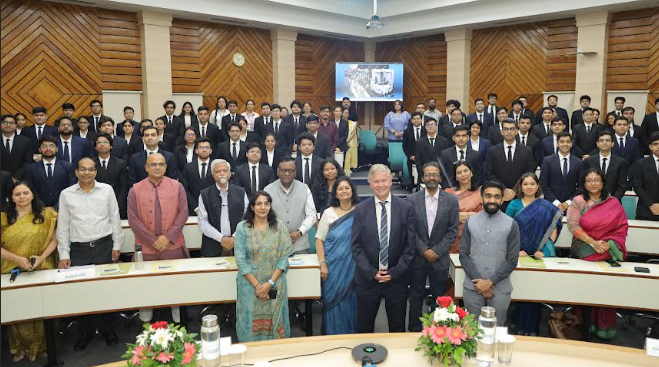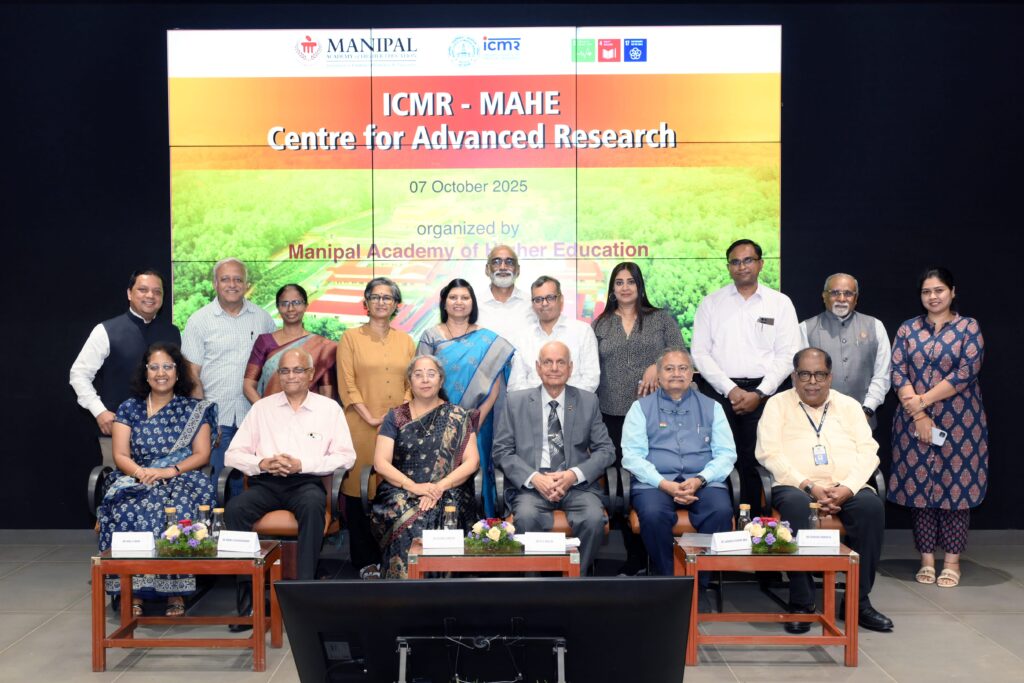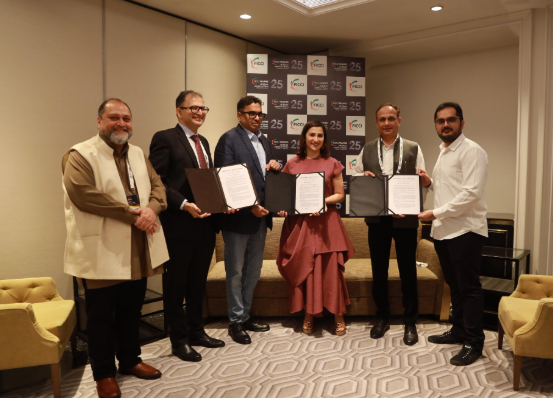Gurgaon, India, October 9, 2025: MDI Gurgaon, one of the premier business schools in India, held a Leadership Lecture on the theme “Collaboration Across Countries: Roadmap for a Sustainable Future” at the MDI Gurgaon Auditorium, featuring Mr. Erik Solheim, Former Minister of Environment, Norway, and former Under-Secretary-General of the United Nations and Executive Director of the United Nations Environment Program. The lecture was facilitated by the Centre for Ethics, ESG Initiatives and Responsible Organisations (CERO), MDI Gurgaon’s institutional centre promoting sustainability, ethical leadership, and responsible management practices.

This session brought together students, faculty, and industry leaders to discuss the importance of collective responsibility and cross-border collaboration for a sustainable and inclusive future. Mr. Solheim delivered a powerful lecture about the need for a new global architecture for peace and development with respect for state sovereignty, saying that to change borders is a “recipe for war.” Mr. Solheim also added, no nation should interfere in another nation’s internal affairs, and there needs to be a global framework for trade in which all nations benefit, and suggested deep structural reform of global institutions to move from a culture of bureaucracy to a culture of delivering.
Reflecting on collective responsibility and sustainability, he said, “True progress comes when nations, organisations, and individuals come together to share a vision. Working across borders is not just an opportunity; it is our responsibility to build a sustainable future for all.”
The event also welcomed Mr. Nishaanth Balashanmugam, the CEO and Director of Green Hydrogen India (GH2 India), who is actively involved in catalysing India’s green hydrogen future, underscoring the vital link between global dialogue and national action on sustainability. He also addressed the gathering, discussing India’s rising leadership in the clean energy space, followed by how innovation and cross-border partnerships in green hydrogen can help accelerate the transition to sustainability and energy security at a global scale.
The lecture focused on how ethical leadership and ESG (environmental, social, governance) principles are essential enablers of global collaboration. Using case studies and discussion, speakers and participants examined the significance of responsible leadership in achieving sustainable business and civil society outcomes.
The gathering convened MDI faculty, students, alumni, and corporate leaders, reinforcing MDI Gurgaon’s position as a thought leader in responsible management education. Through global experts and conversation, MDI Gurgaon continues to advance sustainability, ethics and leadership for change in the real world.






